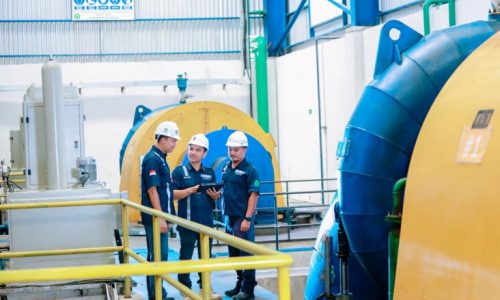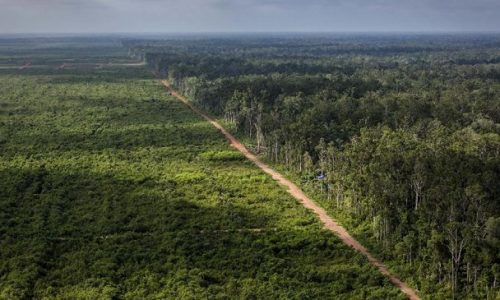The Indonesian Iron and Steel Industry Association (IISIA) has declared its readiness to support upcoming government construction projects under President-elect Prabowo Subianto’s administration, which is likely to continue the development of the Nusantara Capital City (IKN) and build three million housing units annually.
Co-Executive Director of IISIA, Yerry Idroes, said that 52 percent of locally produced steel is utilized in the construction sector, while emphasizing the ongoing IKN development and the ambitious housing target would not significantly increase the market share for the construction sector or burden other manufacturing sectors.
“We still have the capacity because the utilization rate of the national steel industry is below 80 percent. Other manufacturing sectors need not worry as the production capacity of the national steel industry is still adequate,” Yerry said at the Ministry of Public Works and Housing campus on Tuesday, July 23, 2024.
He underscored that the national steel industry would perform well provided there are no disruptions in the domestic market. However, he cautioned that international factors could potentially affect local steel production.
The majority of iron ore, a critical raw material for the national steel industry, is still imported. Consequently, geopolitical conflicts have the potential to disrupt the global steel supply chain, including the delivery of iron ore to Indonesia.
“The war in the Middle East could disrupt the supply of raw materials, some of which are still imported. However, as long as the domestic market remains stable, we remain optimistic,” he said.
Insannul Kamil, Vice Chairman for Public Works, Housing, and Infrastructure Affairs at the Indonesian Chamber of Commerce and Industry (Kadin), emphasized the need for changes in government management regarding housing construction, while citing that President-elect Prabowo’s target of three million houses per year is triple the 1 million per year target set by President Joko Widodo.
“The formation of a new body or the separation of the housing division requires study, but both options would certainly accelerate the achievement of three million houses per year,” he said on May 7, 2024.
Data from Statistics Indonesia (BPS) shows that the housing backlog has stabilized at 12 million units since 2018, reaching 12.71 million units in 2021 and down to 10.51 million units in 2022. This indicates that a total of approximately 1.66 million units, or 300,000 to 400,000 units per year, were built between 2018 and 2021.
Insannul identified regulation as the key to achieving the housing construction target. He noted that regulatory issues have been the largest obstacle to meeting this target.
“Achieving the target of three million houses per year requires a shift from conventional to unconventional methods, which poses a challenge at the middle to lower levels of bureaucracy,” he concluded.









